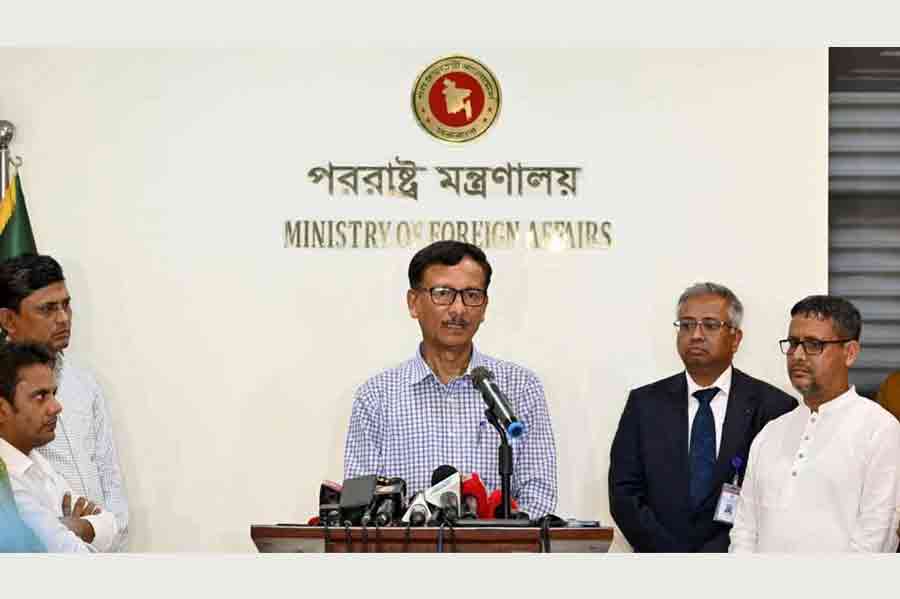Brahmaputra upstream dam: Bangladesh puts faith in Beijing’s assurance

Published :
Updated :

Bangladesh has expressed confidence in China’s explanation of its new hydropower project upstream on the Brahmaputra River, with Foreign Advisor Touhid Hossain saying there is “no reason for concern” over its potential impact.
Speaking at the foreign ministry on Thursday, Touhid said China had assured Dhaka that the project would not involve any water diversion or irrigation components.
He noted that Chinese Ambassador to Bangladesh Yao Wen met him earlier this week and clarified that the plant is not a conventional dam but is based on a multi-stage technology designed to harness water flow without altering its volume.
On Sunday, Chinese Premier Li Qiang announced the launch of a new hydropower project on the Yarlung Zangbo River in Tibet.
This river flows into India as the Brahmaputra and eventually runs through Bangladesh.
Beijing has said the facility could become the world’s largest of its kind, with an estimated cost of $170 billion.
The project has reignited longstanding concerns in downstream countries, particularly India and Bangladesh, over water security.
The Chinese envoy met Touhid on Monday to explain Beijing’s stance.
Asked on Thursday if Dhaka was reassured by the response, Touhid said Bangladesh had told China it wants continued exchange of hydrological data and transparency in project planning.
He added that the aim is to ensure that any potential damage to Bangladesh remains minimal or is avoided entirely, adding that India too has a stake in the issue.
“Our rivers do not originate in our territory. Structures have already been built upstream, and more will follow. We cannot stop them,” the advisor said, when asked if there was concern over China’s construction activity.
“What we can do is try to ensure we are not harmed -- or if we are, the impact remains limited,” he added.
BANGLADESH, INDIA TIES
Asked about Bangladesh’s relations with India, Touhid said Dhaka remains committed to maintaining a “good working relationship based on reciprocity and mutual respect”.
“No one from our government has ever said we don’t want good relations with India,” he added.
His comments followed India’s move to send a medical team to assist victims of a Bangladesh Air Force training jet crash at Milestone School and College.
The team’s arrival on Wednesday sparked questions over whether relations were warming after recent “signs of strain” during the interim government’s term.
Touhid responded by citing India’s recent gift of mangoes and consistent people-to-people connections, which he described as “positive” signs.
Referring to the medical support, he said India was among the countries that offered help following the incident.
“We gathered requirements from the burn institute and conveyed them. Based on that, the team arrived,” he added.
“This is part of people-to-people contact, and that’s always a good thing. I see it as positive.”
Asked if the interim administration had brought any shift in foreign policy, Touhid said: “We are trying to maintain good relations with everyone.
“We’re not doing anything that might damage relations with anyone."
He added, “We’re constantly working to keep those relationships normal and balanced -- without becoming overly dependent on any single country.”
Reinforcing his stance on India, Touhid said: “Our goal is to maintain good relations with India, but always on the basis of mutual respect and dignity.”


 For all latest news, follow The Financial Express Google News channel.
For all latest news, follow The Financial Express Google News channel.